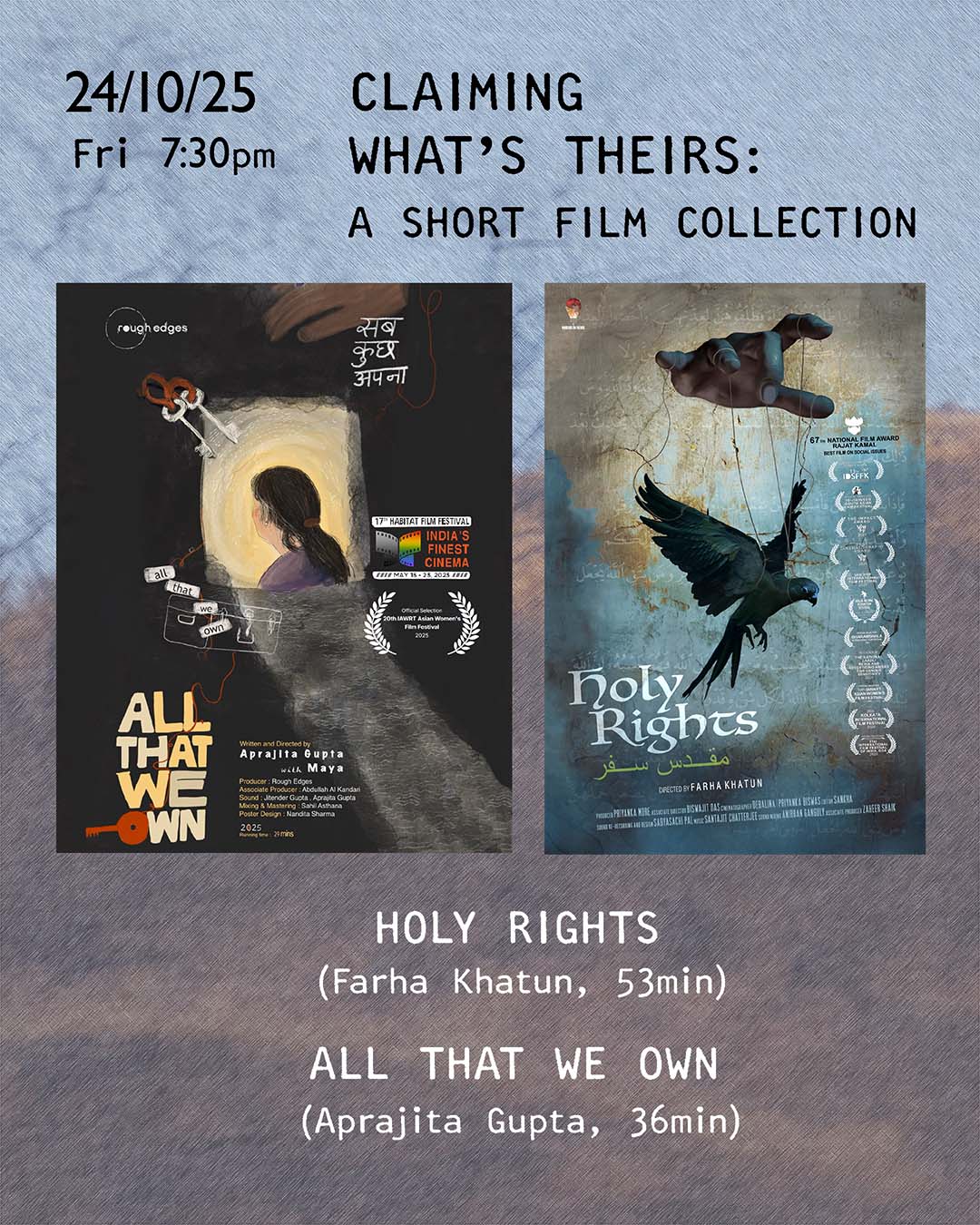Aparajita Gupta// Farah Khatun
Claiming What's Theirs: A short film collection
Claiming What's Theirs: A short film collection
Harkat Studios | 1hr 29mins
English Subtitles
Couldn't load pickup availability
All That We Own (Aparajita Gupta, 36 min)
Holy Rights (Farah Khatun, 53 min)
All That We Own
When a woman leaves her natal home, what does she carry with her and what gets left behind? The filmmaker creates a portrait of her mother born to a migrant family in Nagaland, India and leads us to an inner landscape of displacement. For mum, is visiting her natal home a promise of rootedness or a reminder that belonging is a question still? The film is about inheritance, loss, identity and migration. Through personal and cultural materials like things passed down, photographs and oral songs, the filmmaker looks at traces of forced movement while visually building a connection across generations.


 _________________________
_________________________
Holy Rights
Safia, a deeply religious Muslim woman from Bhopal in Central India, driven by her belief that because of the patriarchal mindset of the interpreters of 'Sharia', Muslim women are denied equality and justice in the community. She joins a program that trains women as Qazis, (Muslim clerics who interpret and administer the personal law), which is traditionally a male preserve. The film documents her journey as she struggles and negotiates through hitherto uncharted territory, exploring the tensions that arise when women try to change the status quo and take control of narratives that so deeply affect their lives. Through Safia 'Apa ' or elder sister as she is called, several other women join the program; through their lived experiences, the film comments on the arbitrariness of the instant 'triple talaq' practice (Instant divorce by saying Talaq thrice). These and other landmark moments, political and legal, find reference in the film as does the changing socio-political scenario that impact their lives.
About the director:Farha is an Indian filmmaker and editor trained in film editing at Roopkala Kendro, Kolkata. It is through the language of documentaries that she articulates her politics. In her films therefore she engages with stories of marginalised - people whose stories would otherwise get lost in a world where mostly power speaks. Through her lens thus one comes across the story of a forgotten trans footballer, story of a woman from Bhopal who challenges patriarchy within her community and defies norms to become an activist in her mid 50s, story of a lone fighter who builds a forest, story of people engaged in a lost profession. She is a two-time recipient of the President's National Film Award in India for the Best film on Social Issues for her directorial debut 'I am Bonnie' and her first feature-length film ‘Holy Rights’. The film was broadcasted on KLIK Indonesia and SBS Australia. Both films have bagged prestigious awards and were widely screened. Her personal journey as a woman, made her focus more on women's lives, hence, gender serves as a critical lens in her work. Farha co-founded the Bitchitra Collective, a support network for women and non-binary filmmakers.


_____
Harkat Studios
Bungalow No. 17,
Aram Nagar Part 2, Versova, Andheri West
Mumbai 400061
Find Harkat on GoogleMaps


